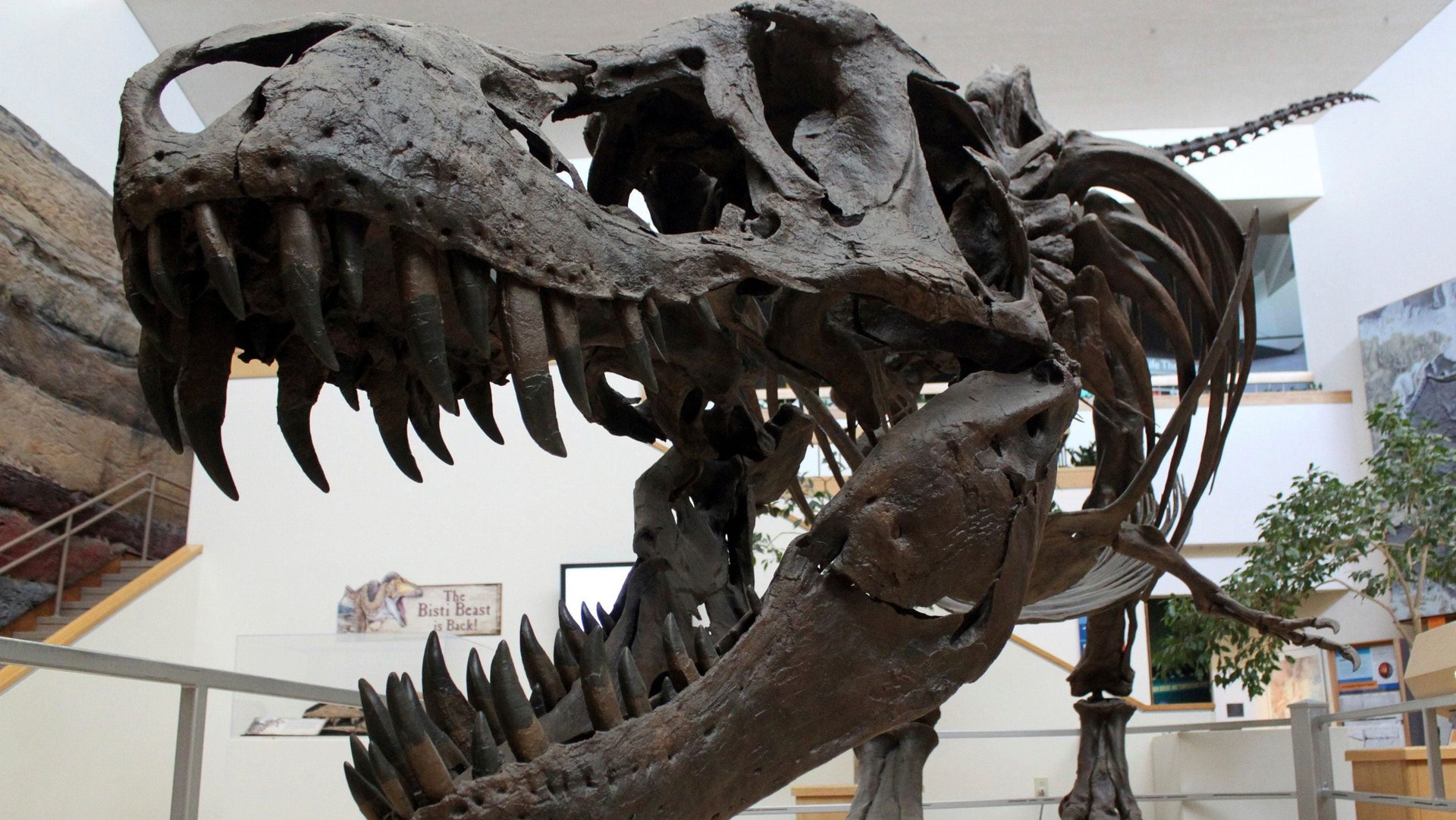Rich people are buying up dinosaurs because museums are too poor to get them
On June 4, an auction house in Paris will put a highly coveted item on the block: A nearly complete skeleton of a carnivorous dinosaur, almost 9 meters (30 feet) long, believed to have lived during the late Jurassic era 154 million years ago. The world’s paleontologists would love to get their hands on the skeleton, which they suspect is a member of a previously undiscovered species. Instead, a private buyer is likely to snatch it up.


On June 4, an auction house in Paris will put a highly coveted item on the block: A nearly complete skeleton of a carnivorous dinosaur, almost 9 meters (30 feet) long, believed to have lived during the late Jurassic era 154 million years ago. The world’s paleontologists would love to get their hands on the skeleton, which they suspect is a member of a previously undiscovered species. Instead, a private buyer is likely to snatch it up.
Museums and scientists increasingly lack the funds to buy dinosaur fossils, which can be auctioned off for enormous sums, an article in the scientific journal Nature yesterday (June 1) explains. This particular fossil, excavated in Wyoming between 2013 and 2015, is expected to go for €1.2 million–1.8 million (US$1.4 million–2.1 million).
David Polly, the president of the Society of Vertebrate Paleontology, tells Nature that such pricey dinosaur auctions are becoming more common. “Any auction likely to generate a high market value is of concern, because science generally operates on a low budget,” he said. “We don’t have money to pay people to collect fossils or to buy them on the open market.”
The Society of Vertebrate Paleontology is asking the auction house, Aguttes, to cancel the sale. ”Fossil specimens that are sold into private hands are lost to science,” a May 17 letter explains, arguing that “scientifically important vertebrate fossils are part of our collective natural heritage and deserve to be held in public trust.”
But in most cases, these sales are completely legal and impossible to stop. Many dinosaur fossils today are being discovered on private land in the US. The law allows the lucky dino discoverers to do as they wish with what’s found on their property. (Other countries where dinosaurs can be found, like China, Mongolia, and Argentina, have laws banning the exporting of fossils entirely.) Museums are eligible to buy skeletons at auctions, too—but many lack the funds to do so.
The popularity of dinosaur auctions is a daunting prospect for scientists, considering that they estimate there are still hundreds of dinosaur types yet to be discovered. When they are, many of them could, as Polly said, become “lost” forever.
“Fossils are irreplaceable natural heritage, and the best and most important ones should be in public museums for anyone to see and enjoy, and accessible for scientists to study,” Steve Brusatte, a paleontologist at the University of Edinburgh, told Quartz via email. “But I also respect that individual countries or states should be able to make their own laws. The US law is pretty clear and landowners have extensive rights over what is found on their property and I’m accepting of that.”
Vincent Santucci, a palaeontologist for the US National Park Service, told Nature that US laws are unlikely to change anytime soon to make it easier for museums to acquire important artifacts. “The notion of private property in the US is so entrenched.”